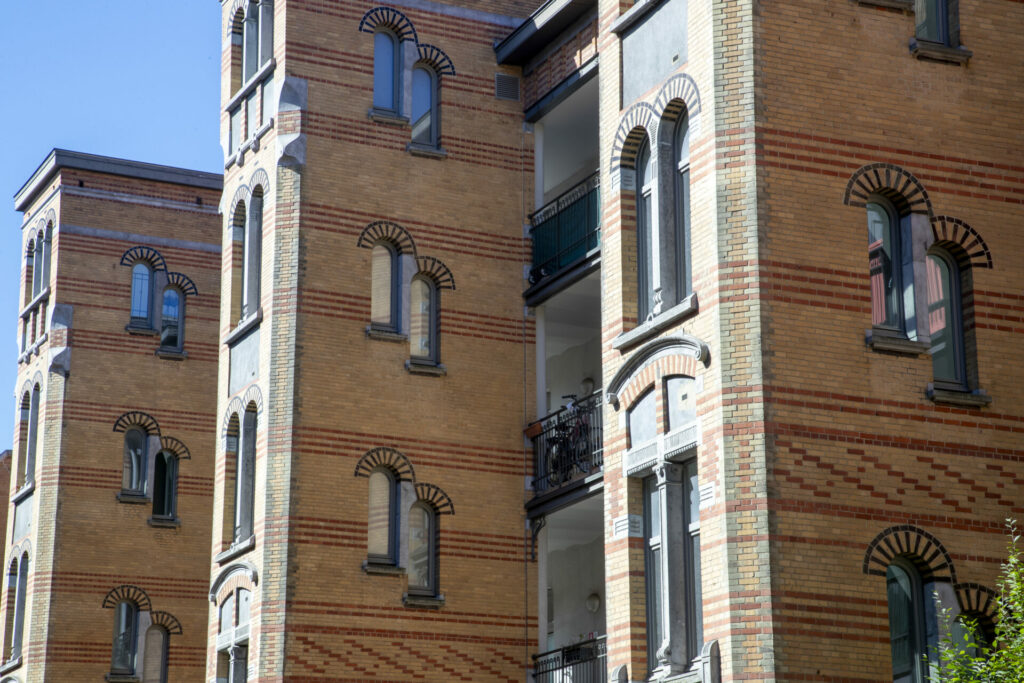Belgium's social housing supply is significantly lower than the European average, even if regional plans to increase housing stocks and improve affordability are in the works.
Social housing stock is measured as the share of social housing dwellings as a percentage of all housing. The relative size is lower in this country than the European average. In Belgium, 6.5% of its properties are defined as public housing, new research by the organisation behind Tomorrow.Building World Congress, based on Eurostat data, showed.
"This positions the country below the European average situated around the 9.5% mark," experts stated.
The difference between the average salary (€2,427) and the average property price per square metre (€3,351) is not as significant in Belgium as in other countries. In Portugal, for example, the average salary is €1,402, around €1,600 below the average property price per square metre. "But still, the demand for public housing in Belgium is high," experts noted.
Since 2015, the average cost of a house in Belgium increased by €100,000 from around €227,000 to €329,000. Flat prices went up by around €75,000 in the same period. Rental prices have also increased significantly. Looming supply shortages are putting further pressure on affordability.
Dutch top the list
The Netherlands has the highest percentage of public housing properties in Europe (30%). "Still, the demand is higher than the supply, which translates into long waiting lists where people with low incomes are prioritised." In France, the figure was 16.8%. In Germany and Luxembourg, the shares were lower (3.9% and 5.1%, respectively).
Overall, the richest European countries have more social housing, experts found. This includes Switzerland (25%), which has a decentralised approach where each region addresses the housing needs independently. "Although the average salary in Switzerland is around €6,200, the price per square metre is around €12.021, making the demand for public housing in cities like Zurich, Geneva and Basel difficult to fulfil."
Austria (24%), Norway (23%), and Denmark (20.9%) also have high shares. On the other hand, Greece, Latvia, Lithuania, and Malta do not have public housing. "The countries with a lower percentage of public housing have the lowest salaries across Europe, while the price per square metre is significantly higher."
Improving situation
To address the housing accessibility issue, European countries have implemented various measures to ensure access to affordable housing. These strategies include home-buying assistance, social housing programs, and rental price regulations. In Belgium, measures are taken per region, as housing is a regional competency.
In Brussels, rent allowances are offered to help citizens rent private market rentals while they are waiting for social housing to be allocated. At the end of last year, however, around 50,000 households were on the waiting list. Meanwhile, the region does not have a government, meaning there is no concrete plan to tackle the housing crisis.
The new Flemish Government has vowed to build more social housing. It provided a record budget of €6 billion for the construction and renovation of social housing, and by 2026, will draw up a new Binding Social Objective that will ensure that every municipality does its part to provide more social housing.
"Today, there are many people on the waiting list for social housing," said Flemish Minister for Housing Melissa Depraetere. "They are forced to rent on the private rental market. This in turn increases the pressure on the private rental market. By building social housing on a massive scale now, we can reduce the pressure on the private rental market." It also lowered registration fees from 3% to 2% to make buying a home more affordable.
The new Walloon Government reduced registration fees from 12.5% to 3% for the purchase of a first home. It is also setting up a monitoring system to put empty homes back on the market. It will increase the number of public housing units by encouraging private owners to rent out their properties through such systems.

